San Antonio Traffic Ticket Attorneys: What to Expect When Fighting Your Case
When you find yourself facing a traffic ticket in San Antonio, hiring an attorney can significantly impact your case. You can expect an initial consultation where your attorney will discuss the details of your violation and outline potential defenses. As the process unfolds, your attorney will gather evidence and prepare you for court appearances. Understanding what to anticipate at each stage is crucial, but the outcomes can vary widely. Knowing how to navigate these complexities can make a difference in your casewhat strategies will you need to consider?
Understanding Traffic Ticket Types
When you get a traffic ticket, it’s crucial to understand the different types of violations you might face. Traffic violations typically fall into two categories: moving violations and non-moving violations.
Moving violations, like speeding, running a red light, or reckless driving, generally involve the operation of your vehicle and can lead to points on your driving record. These points can increase your insurance rates and even result in license suspension if you accumulate too many.
On the other hand, non-moving violations include issues such as parking tickets or faulty equipment, like a broken tail light. While they’re usually less severe, they can still result in fines and affect your driving record if you don’t address them promptly.
Understanding the nature of your ticket can help you decide how to proceed. If you find yourself facing a moving violation, it’s wise to consider your options carefully. You might want to contest the ticket or seek legal advice, especially if you believe there’s a valid defense. Knowing the type of violation you’re dealing with is the first step toward resolving your traffic ticket effectively.
Initial Consultation Process
An initial consultation with a traffic ticket attorney is your opportunity to discuss the specifics of your case and explore your options. During this meeting, you’ll provide details about the incident, including the circumstances surrounding your ticket. It’s important to be honest and thorough to give your attorney a clear understanding of your situation.
Expect your attorney to ask questions about the ticket, such as the date, location, and any evidence or witnesses. This information will help them assess the strength of your case. You should also share any prior traffic violations, as this can impact your situation.
Your attorney may explain potential outcomes, including the possibility of reducing fines or penalties. They’ll also discuss any fees associated with their services, so you know what to expect financially.
Building Your Defense Strategy
After your initial consultation, you’ll start building a defense strategy tailored to the specifics of your traffic ticket case. Your attorney will analyze the details of your citation, the circumstances surrounding it, and any evidence that can support your defense. This might include reviewing police reports, witness statements, and even video footage if available.
Next, you’ll discuss potential defenses. Common strategies include questioning the accuracy of the radar used, proving that signage was unclear, or demonstrating that you were in compliance with traffic laws. Your attorney will help you identify the strongest arguments based on the facts of your situation.
You’ll also need to gather supporting evidence, such as photographs or diagrams of the scene. If there are witnesses who can corroborate your account, your attorney may suggest contacting them for statements.
Court Appearance Expectations
You should be prepared for what to expect during your court appearance, as it can be a crucial part of resolving your traffic ticket case.
First, dress appropriately. Showing respect for the court by wearing professional attire can help create a positive impression. Arrive early to familiarize yourself with the courtroom and the process.
When your case is called, you’ll stand before the judge. Be ready to present your defense clearly and confidently. If you have an attorney, they’ll handle most of the speaking, but you should still be prepared to answer questions if needed. Listen carefully to any statements made by the prosecution, as this can help you respond effectively.
During the hearing, maintain a respectful demeanor. Avoid interrupting the judge or other parties, and address the judge as “Your Honor.†If you’ve gathered evidence or witnesses, ensure they’re present and ready to contribute.
Potential Outcomes and Next Steps
Understanding the potential outcomes of your traffic ticket case can help you navigate the next steps more effectively. After presenting your case, the judge may rule in a few ways. You could win, which means the ticket gets dismissed, and that’s always the best outcome. If you lose, you might face fines or points on your driving record.
Another option is a plea deal. Your attorney can negotiate for reduced fines or alternative penalties, like attending a defensive driving course. This can help minimize the impact on your record and insurance rates.
If you’re unhappy with the outcome, you have the right to appeal, but this often requires additional legal steps and can extend the process.
Once you know the result, discuss the next steps with your attorney. If you’ve won, celebrate! If you’ve lost, your attorney can guide you on the best course of action, whether that’s paying the fine, attending a course, or considering an appeal.
Staying in communication with your attorney throughout this process is vital to ensure you make informed decisions moving forward.
In conclusion, when you work with San Antonio traffic ticket attorneys, you’ll gain valuable support throughout the entire process.
From understanding your ticket type to strategizing your defense and preparing for court, you can expect professionalism and effective communication.
With the right guidance, you’ll navigate potential outcomes, whether it’s a dismissal or a plea deal.
Trust your attorney to advocate for you, so you can focus on moving forward with confidence.


Leave A Comment